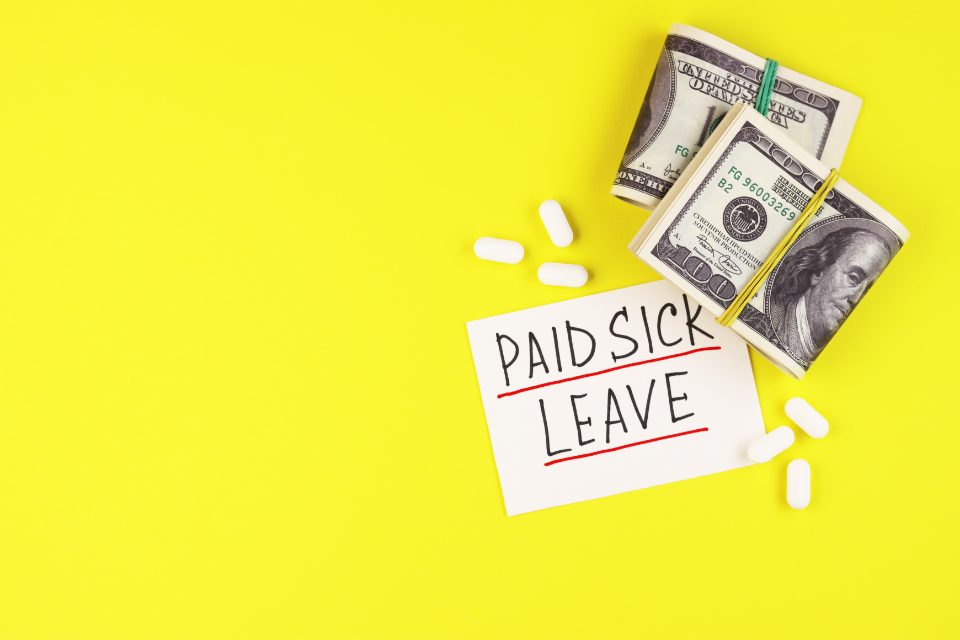Did you know that employees can get two weeks or 80 hours of paid medical leave or extended family medical leave under the Families First Coronavirus Response Act or FFCR Act? This is highly crucial as the United States doesn’t have a federal-level paid sick leave law.
According to Pew Research, almost a quarter of American employees do not have paid sick leave. Many of these folks work for tiny enterprises with 1 to 100 workers. In reaction to COVID-19, the major goal of the Families First Coronavirus Response Act was to offer emergency paid sick leave, paid family medical leave, and more financing for food subsidies and welfare services.
The Families First Coronavirus Response Act stepped in to help these workers by giving them two weeks of paid days off. It also extended family medical leave for 12 weeks by amending the Family and Medical Leave Act.
Because this is an added expense for small enterprises, waivers and tax rebates are available to those who qualify. These incentives are also accessible to independent contractors and freelance workers through tax breaks, albeit the FFCRA imposes a few additional criteria for confirming compliance with the standards.
This article will talk about everything that a small business needs to know about Families First Coronavirus Response Act.
Table of Content:
- Overview of Families First Coronavirus Response Act
- The Emergency Family and Medical Leave Expansion Act
- What Perks Do Employees Have Access To Under The EFMLE Act?
- The Emergency Paid Sick Leave Act
- What are the Eligibility Criteria for ESPL?
- What Perks do Employees Have Access To?
- Limitations
- Relief for Businesses under Families First Coronavirus Response Act
- For self-employed individuals
- How Can Deskera Assist You?
- Frequently Asked Questions
- Do the Acts apply to me if I am a private-sector company with 500 or more employees?
- Are all FMLA leaves paid?
- When can employees telework under the FFCRA?
- Key Takeaways:
Let’s Start!
Overview of Families First Coronavirus Response Act
On March 18, the Trump government enacted the HR 6201, or the Families First Coronavirus Response Act, into action considering the coronavirus outbreak.
The measure allows more than $100 billion in support and addresses paid sick leave, family support, free coronavirus screening, and enhanced welfare payments.
The law contains two significant portions that will have a significant effect on enterprises with less than 500 workers. They are:
1. The Emergency Family and Medical Leave Expansion Act (EFMLEA)
2. The Emergency Paid Sick Leave Act (EPSLA)
Let's look at how this law will affect your business.
The Emergency Family and Medical Leave Expansion Act
The FFCR act updates the Federal Family and Medical Leave Act to incorporate various amendments beginning April 1, 2019, ending December 31, 2020.
These modifications broaden the grounds that employees can seek absence during the COVID-19 epidemic and contain employment safeguards and other provisions.
Here are some crucial facts small businesses should know about the EFMLE Act:
1. Considering COVID-19, the federal government has expanded the FMLA to cover worker rights to leave of absence. Under the EFMLEA, all workers of enterprises with less than 500 employees can take an absence for a qualified necessity connected to a national epidemic.
2. Previously, workers had to have worked for the firm for 12 months and 1,250 hours to be qualified for FMLA. The EFMLA reduces this to 30 calendar days when a worker cannot work (or remote work) owing to the necessity of caring for a juvenile or disabled kid for whom they have parental duties.
3. The EFMLEA applies to enterprises with 50 or more workers. 50 or more employees should have completed a working day in each of the previous or current fiscal year's 20 calendar workweeks to satisfy the needed level.
4. Unlike the FMLA, which compels companies to restore employees to their former or an equivalent role when they return, the EFMLEA excludes certain small firms from employment protection during or after the absence.
What Perks Do Employees Have Access To Under The EFMLE Act?
The EFMLEA compels employers to compensate employees for sick time taken under the following conditions:
1. The first ten days of absence are unpaid
2. Employees may use any unused sick, holiday, or personal leave during the first ten days
3. After 10 days, companies must pay qualified workers at least two-thirds of their standard pay
4. The pay has a cap of $200 per day or $10,000 total
Workers who can not work because of shutting down school or daycare providers because of COVID-19 may be eligible for up to 10 weeks of paid parental leave at two-thirds pay, with a ceiling of $200 per day or $10,000 overall.
Now, let’s move our attention to the EPSLA.
The Emergency Paid Sick Leave Act
Emergency paid leave is the perk introduced by the Families First Coronavirus Response Act. If a person cannot work because of COVID-19, they can receive up to paid two weeks (10 workdays) off.
What are the Eligibility Criteria for ESPL?
There are various situations under which an employee may be eligible for emergency paid leave, including:
· The worker works for a company with less than 500 employees.
· The worker is liable to a COVID-19 confinement or isolation mandate issued by the federal, state, or municipal government.
· To avoid the spread of coronavirus, the worker is isolated at the command of a medical authority or professional.
· The employee is suffering from COVID-19 concerns and is looking for treatment.
· Because of the closing of a school, the employee is caring for a kid or another person.
· The employee suffers from ailments comparable to those listed by the US Department of Health and Human Services (HHS).
What Perks do Employees Have Access To?
Part-time workers receive their average hours worked in two weeks, while full-time workers receive 80 hours. This stays unchanged under the current law: a worker is only eligible for one allocation of 80 hours of emergency paid sick leave.
The incentive amount is determined by how the worker qualifies. The total payout is $511 each day for 80 hours, for a total payoff of $5,110.
If a worker qualifies under #4, #5, or #6, the sum is two-thirds of the average rate, with a daily limit of $200 and an overall reward of $2,000.
Limitations
According to the FFCRA, businesses with fewer than 50 workers can opt-out of leaving payroll obligations if they would risk profitability. However, it is now unclear how a small firm might get the right to opt-out.
Relief for Businesses under Families First Coronavirus Response Act
Providing paid sick leave will most certainly be too expensive for small businesses, but the FFCRA has provided some respite. In addition, companies may expect the federal government to completely compensate them for employee leave compensation through refundable tax credits.
For self-employed individuals
Individuals who work for themselves are eligible for tax breaks. Self-employed employees who assess their "average daily self-employment income" and supply themselves with EPSLA payments during their absence are eligible for tax credits under the FFCRA.
Self-employed individuals should compute their net revenue for the fiscal year and divide by 260. This sum, subject to a maximum of $511 per day for 10 days or $200 per day for 10 weeks, should be utterly refundable as yearly or quarterly tax refunds.
How Can Deskera Assist You?
Deskera People is an HR-specific cloud-based software that allows you to create your payroll schedules, manage leaves and absences and take care of paid leave management.
You will also be able to create a bespoke compensation package with components such as employee bonuses, overtime pay, voluntary deductions, etc. Deskera People will automatically identify these, and your employees' compensation will be computed appropriately. Finally, Deskera People allows you to maintain all the necessary data for each of your workers.
So, if you want to save time, money, and effort, contact us, and we will be glad to help you.
Frequently Asked Questions
Do the Acts apply to me if I am a private-sector company with 500 or more employees?
No. Employers in the private sector are only obligated to comply with the Acts if they have less than 500 workers.
Are all FMLA leaves paid?
No. When such absence reaches ten days, the only sort of compensated family medical leave extends to family and medical leave under the EFMLE Act. However, this only covers absences from workers who have to take care of children whose schools or daycares are closed or whose caregivers are unavailable due to the pandemic.
When can employees telework under the FFCRA?
Employees can telework if the company enables them to work from home or another location other than their regular office. Telework is work for which regular payments must be paid but is not reimbursed under the FFCRA's paid leave rules.
How Deskera Can Assist You?
As a business, you must be diligent with the employee payroll system. Deskera People allows you to conveniently manage payroll, leave, attendance, and other expenses. Generating payslips for your employees is now easy as the platform also digitizes and automates HR processes.
Key Takeaways
· The Families First Coronavirus Response Act stepped in to help workers during the pandemic by giving them two weeks of paid days off.
· It also extended family medical leave for 12 weeks by amending the Family and Medical Leave Act.
· The measure allows more than $100 billion in support and addresses paid sick leave, family support, free coronavirus screening, and enhanced welfare payments.
· The FFCR act updates the Federal Family and Medical Leave Act to incorporate various amendments like broadening the grounds that employees can seek absence during the COVID-19 epidemic and containing employment safeguards and other provisions.
· Emergency paid leave is the perk introduced by the Families First Coronavirus Response Act. If a person cannot work because of COVID-19, they can receive up to paid two weeks (10 workdays) off.
· Because this is an added expense for small enterprises, waivers and tax rebates are available to those who qualify.
· These incentives are also accessible to independent contractors and freelance workers through tax breaks, albeit the FFCRA imposes a few additional criteria for confirming compliance with the standards.
Related Articles












